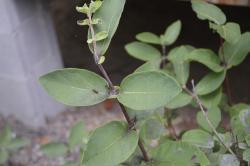does anyone know what is attacking the blueberry bushes, there appear to be quite a few flying insects .. looks a bit like large ants. The bushes appear to have black fungus on leaves near the centre of the bush.
Any help will be appreciated.. located in NE Ontario
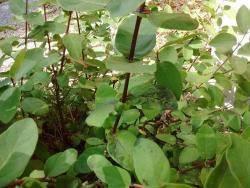
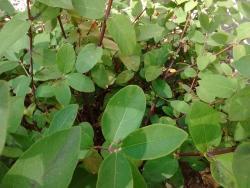
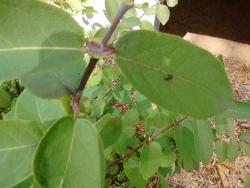
here is more info as requested.. better quality images, there appears to be 3 different types of insects attacking the bushes
1) Mold?
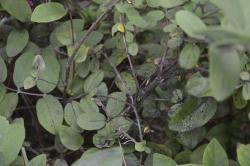
2) multicolored bug (not as many of these seen)
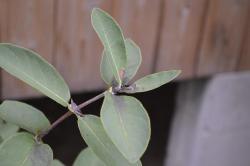
3) large black flying insect (quite a few of these)
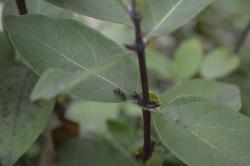
4) medium sized brown flying insect
